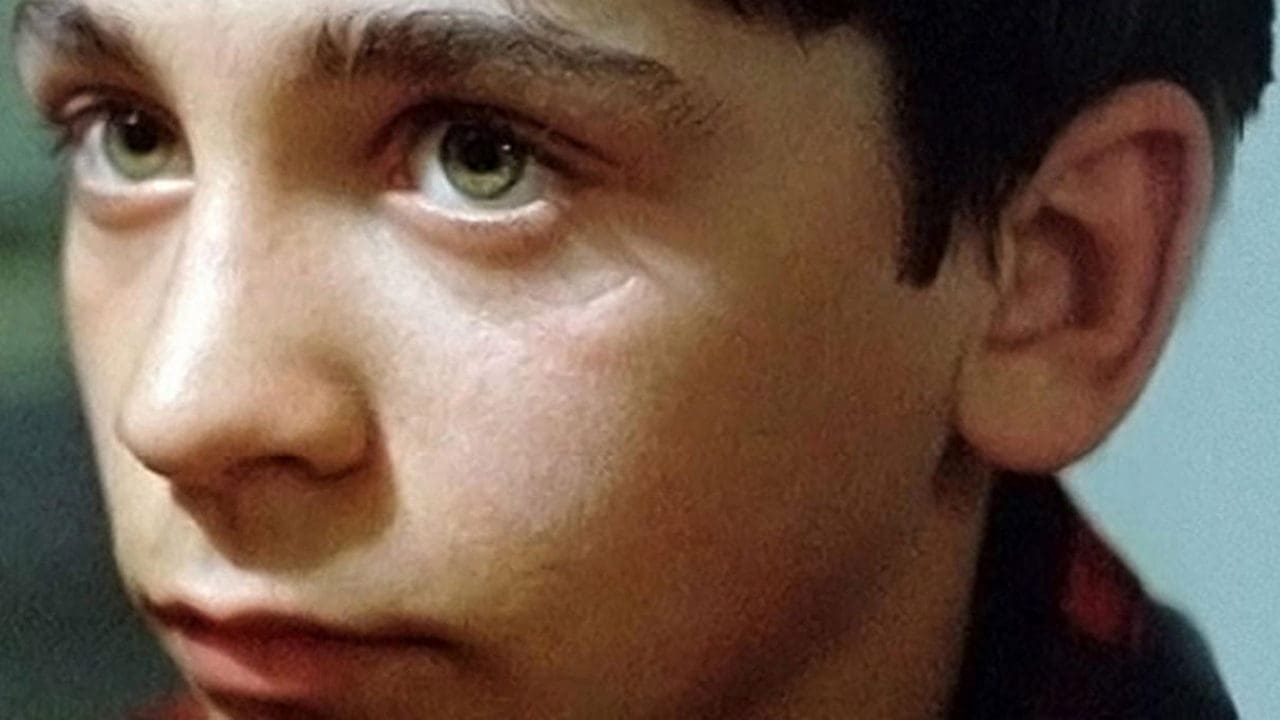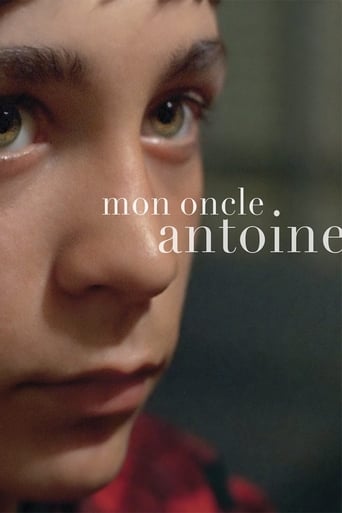

The first in the line of Canadian coming-of-age films that included Lies My Father Told Me, Who Has Seen the Wind, Les bons débarras and Léolo, Claude Jutra's 1971 masterpiece Mon Oncle Antoine has remarkably endured as one of the most admired of Canadian films. Set in the snow-covered landscape of Quebec in the 1940s, the film is notable for the tenderness and humor it brings to its story of the loss of innocence of a teenage boy and the awakening of Quebec to its dream of independence.Benoit (Jacques Gagnon) is a 15-year old boy who has lost both of his parents and is being raised by his Uncle Antoine (Jean Duceppe) and his wife Aunt Cecile (Olivette Thibault). Antoine is the owner of a small general store in an asbestos-mining town who also serves as the village undertaker, and the film poignantly depicts the townsfolk in the rural village on the eve of their annual Christmas celebration. We learn from the outset that the mine owners are English-speaking and the French minorities are treated as second-class citizens, the clouds of contaminated smoke emanating from the mine signaling the unfairness of the system.The film moves from comedy to drama and back again. Benoit discovers the village priest as he surreptitiously takes a nip of liquor, sneaks a look at a haughty neighbor, Alexandrine (Monique Mercure) as she tries on a corset, and innocently discovers his attraction to a teenage girl, Carmen (Lyne Champagne), who also works in the store. The turning point of the film, however, is the stunning sequence in which the young boy travels on horse and carriage with his Uncle into the winter countryside where they are to retrieve the body of a teenage boy who has succumbed to his illness.This scene underscores Benoit's initial encounter with death, his awareness of his uncle's alcoholism, and the betrayal he feels when he discovers his Aunt's infidelity upon their return. Mon Oncle Antoine is a memorable and timeless classic and the freeze-frame when we recognize Benoit's transition from childhood innocence to a grudging maturity is as powerful as any including Francois Truffaut's The 400 Blows.
... View MoreMon oncle Antoine was voted the greatest Canadian film of all time by the Toronto Festival of Festivals in 1984 and 1993. But why? Leonard Maltin, who I usually don't like, brushed this movie off with a sentence "Not bad, but nothing special." Who's right? Does it matter if the viewer is Canadian? It's true there's little wrong quality-wise with Mon oncle Antoine. It focuses on Quebec at Christmastime prior to the Quiet Revolution. Great setting with lots of possibilities for stories. The musical score works charmingly. It's a coming-of-age story about 15-year-old Benoit. The problem is that virtually nothing happens- the high point of action in this movie is when a coffin falls off a sled. Really? What's that supposed to say? If there's a message, it's cryptic. There's nothing clearly political about this movie, nothing especially unique to Canada or Quebec, and nothing valuable or surprising to learn about Duplessis' era. Without much apparently happening, there's little here you can't get from a Cornelius Krieghoff painting.So what is the best Canadian film? I can't say I've seen many but I can point to The Sweet Hereafter (1997) or even Last Night (1998) as better movies. In comparison to those, Mon oncle Antoine is competently-made but does not shine.
... View MoreThis film has consistently been voted as the greatest Canadian film ever made in various critics polls over the years. Revered New Yorker film critic Pauline Kael hailed it as a small masterpiece upon original release but it is the sort of slow, intimate, character-based drama that has never achieved the sort of wide appeal (outside of Canada) that more plot focused films have. Watching some of the supplementary material on the Criterion Collection disc, it is also clear that there are many cultural references in the film that will mean more to a Canadian (particularly a French Canadian) than to other viewers.The film meanders amiably along, capturing in unhurried pace the life of rural 1940's Quebec, in this case an asbestos mining town. The main characters are Benoit, an orphaned boy, the local undertaker Antoine and his assistant Fernand played by the director himself Claude Jutra. Eventually the film reaches its big set-piece, a long, extended night sequence where Benoit and Antoine (covered in furs) must traverse the icy, snow covered landscape via sled to retrieve the body of a boy who has died at a farmhouse.The director was hailed as the new savior of Canadian cinema at the time of release, but unfortunately never achieved the level of success later on that he did with this film. He mysteriously disappeared one winter and his body was discovered the following spring after the ice had thawed...a simple note attached, "My name is Claude Jutra".
... View MoreThis isn't quite the best Canadian film ever, IMO. I won't get off track and name 3 or 4 better. Just a couple of nights before I'd seen "The Bicycle Thief", the highly rated Italian classic, and there are some parallels. Both filmmakers shot their film in a specific time and specific place, with minimal resources in terms of sets and cast. And the result in both cases is fascinating and a joy to watch for the realistic setting and characters alone. The lingering shots over faces and landscape almost make this worth watching on its own. That being said, this one isn't quite in the same league as the Italian classic. The movie is shot in a frigid, barren Quebec asbestos mining town. That frigidity is contrasted with the warmth of the people and the eye of the filmmaker Claude Jutra. Basically, what you get is a series of vignettes that are likely nostalgic recollections of Jutra - not ha, ha funny - but poignant, and probably sometimes difficult at the time, but now warmed over with the patine of nostalgia. The movie meanders; there is little tension. Somewhere around half to two thirds way through the story begins. Everyone you've met to this point is involved, and you've gotten to know these characters rather well; so have a little patience at the outset. The story is a good one; it will leave you thinking, and it involves sex, love and death, all the basic elements. If you like Bergman, Godard, Truffaut, all that kind of stuff, you won't be disappointed by this.
... View More